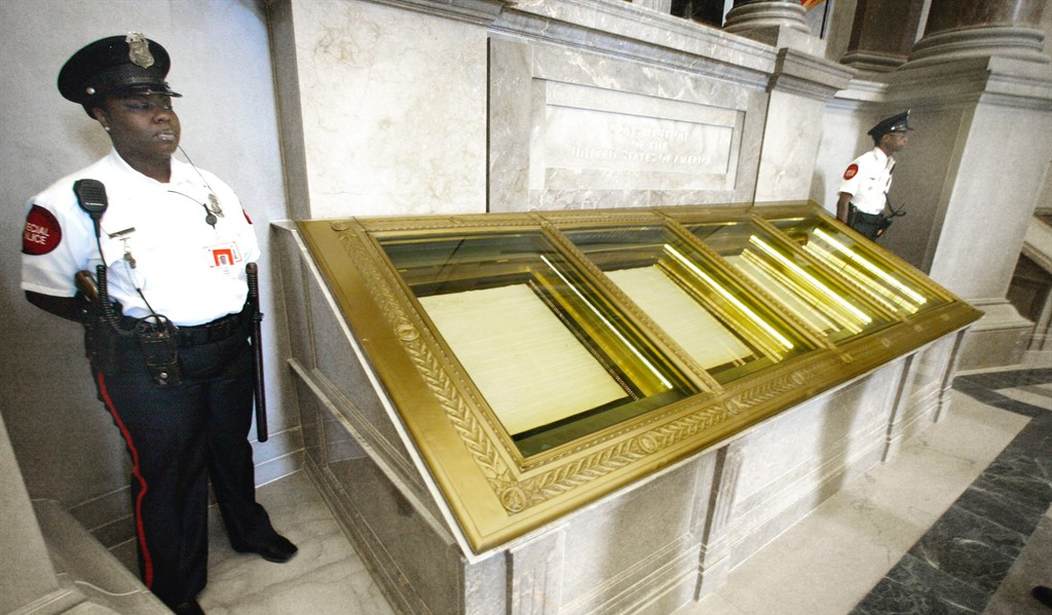We celebrate every July 4th with fireworks, parades, speeches and other tributes. And rightly so -- our Declaration of Independence heralded a new age in human history. So why does Sept. 17 come and go with so little notice?
That’s the date our Constitution was signed in 1787. Considering how profoundly it altered our nation and shaped our destiny, we should be marking Constitution Day with as much pomp and circumstance as we do Independence Day. The Declaration, after all, gave birth to our nation, but the Constitution raised it and gave it its unique and immutable character.
Lest this sound like mere bragging (though I think any pride we take is more than justifiable), consider how long the Constitution has endured: 229 years. The average age of other national constitutions since the time it was written, according to Thomas Ginsburg of the University of Chicago Law School, is only 17 years.
It’s easy to take the permanence of the Constitution for granted. But it really is extraordinary for a nation to follow the same charter for more than two centuries, with no end in sight. The citizens of many other countries see a new constitution every few years, and they experience the ups and downs that accompany every change. Not us.
That’s not to say it’s been nothing but smooth sailing over the years. It took a long, arduous debate before our founders worked out the details of the Constitution. Each sentence, each phrase, each word was born of careful and diligent compromise.
We’ve added more than two dozen amendments. We fought a bloody civil war that temporarily saw our nation ripped in two. We’ve argued over the meaning of each Article again and again, with controversial laws and court cases fueling every new debate.
Recommended
But through it all, our Constitution has endured. Why?
For one thing, it’s relatively short. Every American can (and should) carry a copy in a purse or pocket, or someplace very accessible. And it’s written in language that just about anyone can understand. That’s not by accident -- this is “We the People” setting up a form of government meant to stand the test of time.
“By the diffusion of power -- horizontally among the three separate branches of the federal government and vertically in the allocation of power between the central government and the states -- the Constitution’s Framers devised a structure of government strong enough to ensure the nation’s future strength and prosperity, but without sufficient power to threaten the liberty of the people,” writes Edwin Meese, U.S. attorney general under President Reagan, in “The Heritage Guide to the Constitution.”
It’s hard to overestimate the scope of this task. As Larry P. Arnn, president of Hillsdale College, notes: “The original Congress was called the Continental Congress, although no one would understand the extent of the continent until Lewis and Clark reported to President Jefferson in 1806. They had to figure out a way for the first free government in history to grow across that continent. These things took vast acts of imagination.”
Hence the genius of our federalist system of government, with its checks and balances and with powers carefully divided between the state and federal levels. Federalism protects local flexibility and autonomy, and it ensures that power is exercised at the closest, most accountable level possible. It also lets states take different approaches to policy problems. This “competitive federalism” expands citizens’ freedom and encourages states to make good laws.
“The Constitution is the guide which I never will abandon,” George Washington once said. More than two centuries later, his words ring truer than ever. But we can’t hold fast to what we don’t know. This Constitution Day, let’s reacquaint ourselves with the document that 19th century British Prime Minister William Gladstone described as “the most wonderful work ever struck off at a given time by the brain and purpose of man.”

























Join the conversation as a VIP Member